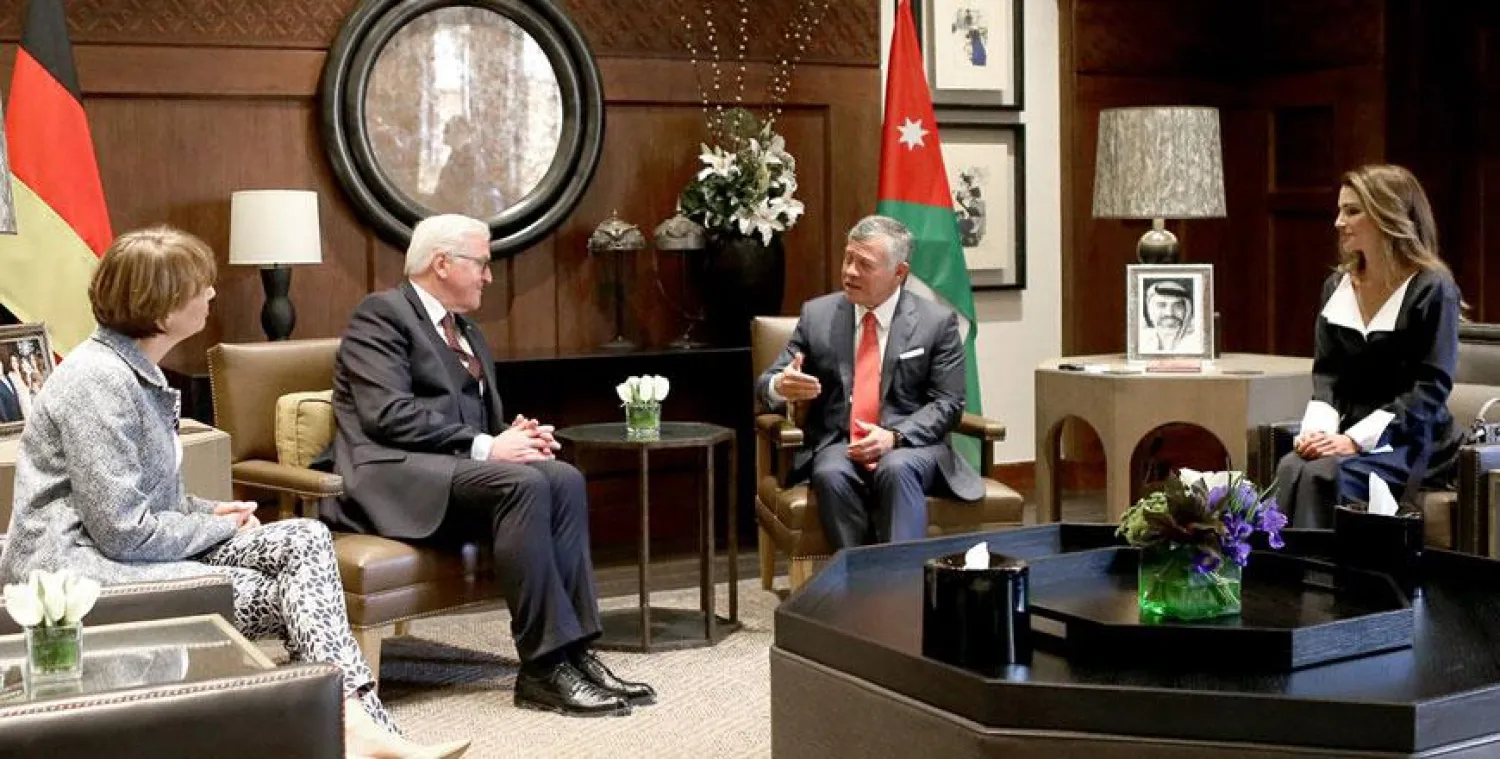Jordan's King Abdullah II held talks on Sunday with German President Frank-Walter Steinmeier at the Husseiniya Palace in Amman, focusing on the strategic partnership between the two countries, regional and international developments and the Palestinian file.
The two leaders discussed means to develop cooperation between the two countries, especially at the economic, investment, tourism, development, military and security levels.
The King underlined strong and historic ties with Germany and welcomed Steinmeier in his new capacity as president and “as an old and dear friend of Jordan.”
He also mentioned recent meetings with German Defense Minister Ursula von der Leyen, and in Davos with Chancellor Angela Merkel with whom he discussed issues of common interest.
King Abdullah highlighted the development of defense and security ties between the two countries, expressing keenness to advance them further in the wake of the current circumstances.
“There are many issues that we will discuss, the most important of which is the question of Jerusalem and the future of the peace process,” he stated.
“I believe that our position on the Palestinian issue and Jerusalem is known to you,” he told his German counterpart. “We support the two-state solution in which East Jerusalem is the capital of the Palestinians. These are certain subjects that we will discuss.”
Steinmeier, for his part, stressed that relations with Jordan have grown stronger in the past years.
He added that Germany “follows Jordan’s policy in the region with huge respect and admiration”, noting that the Kingdom was under difficult conditions, especially since 2011, with the arrival of tens of thousands of Syrian refugees to the country.
“I know this is a huge burden for Jordan,” Steinmeier stated, noting that his country was “ready and responsible” to support the Kingdom in shouldering this weight.
The president said discussions would also focus on regional issues, namely Palestinian-Israeli relations and the future status of Jerusalem, as well as tensions between Saudi Arabia and Iran, which affect the entire region.









